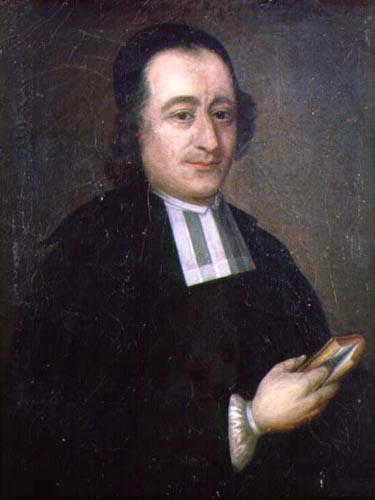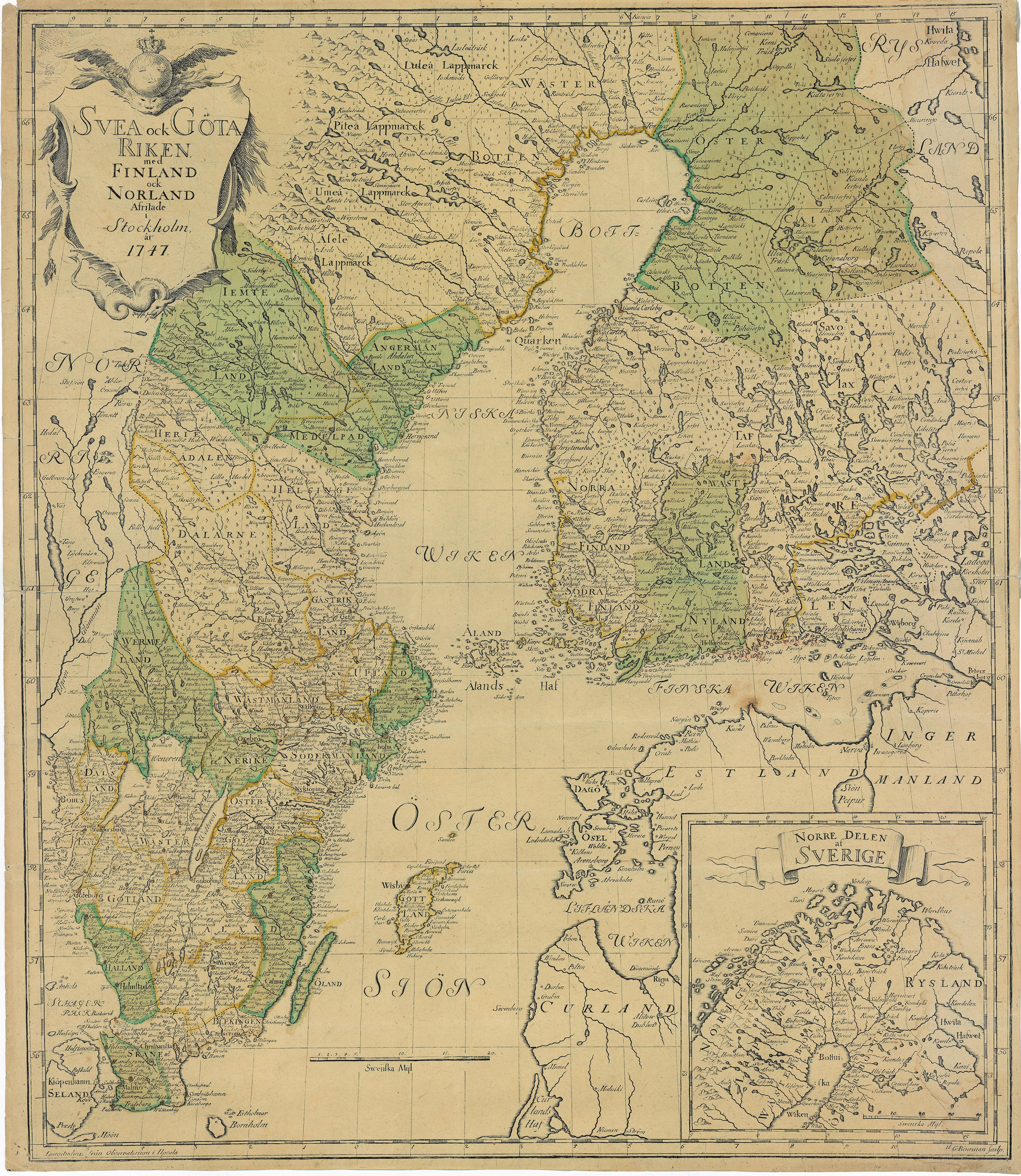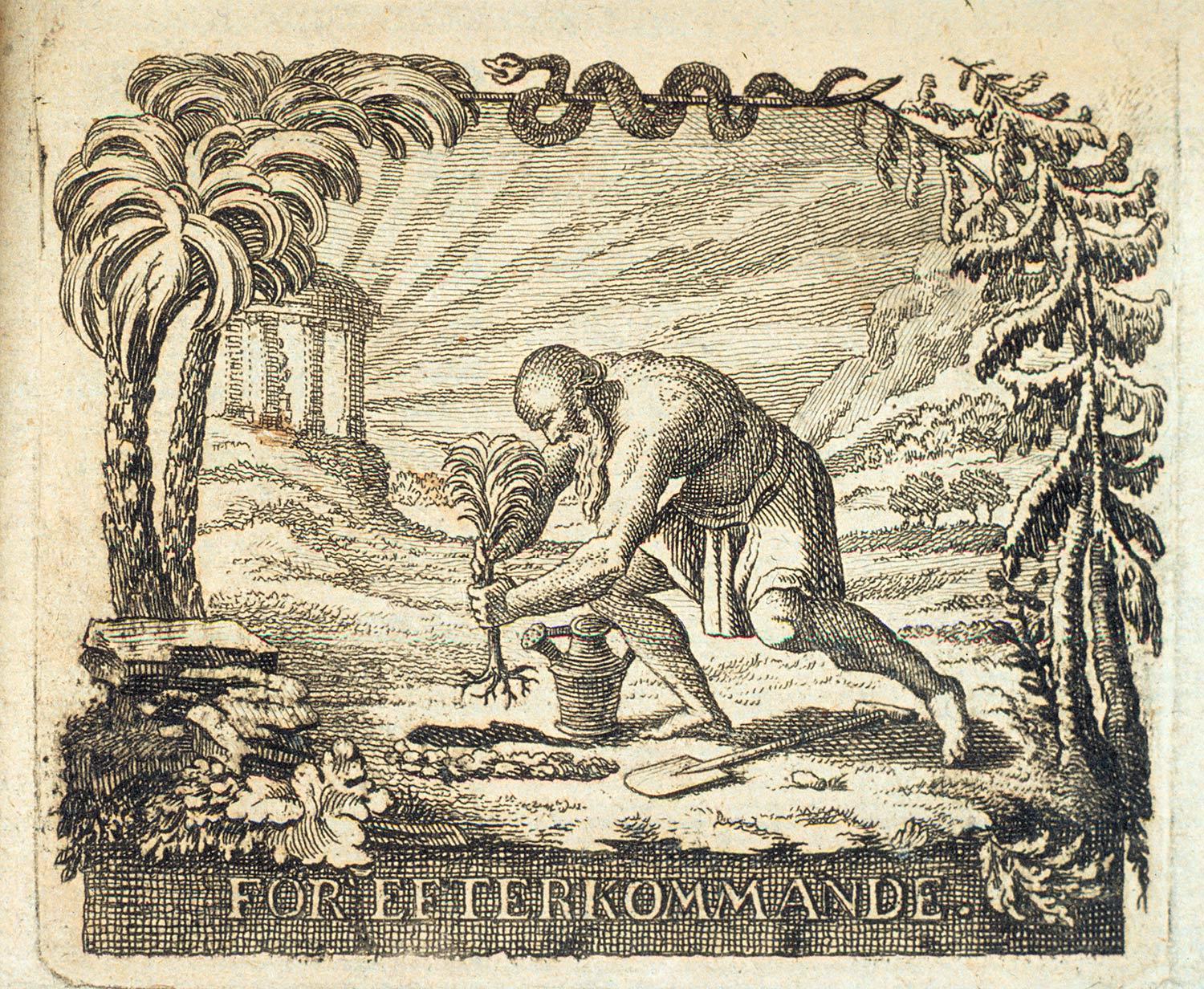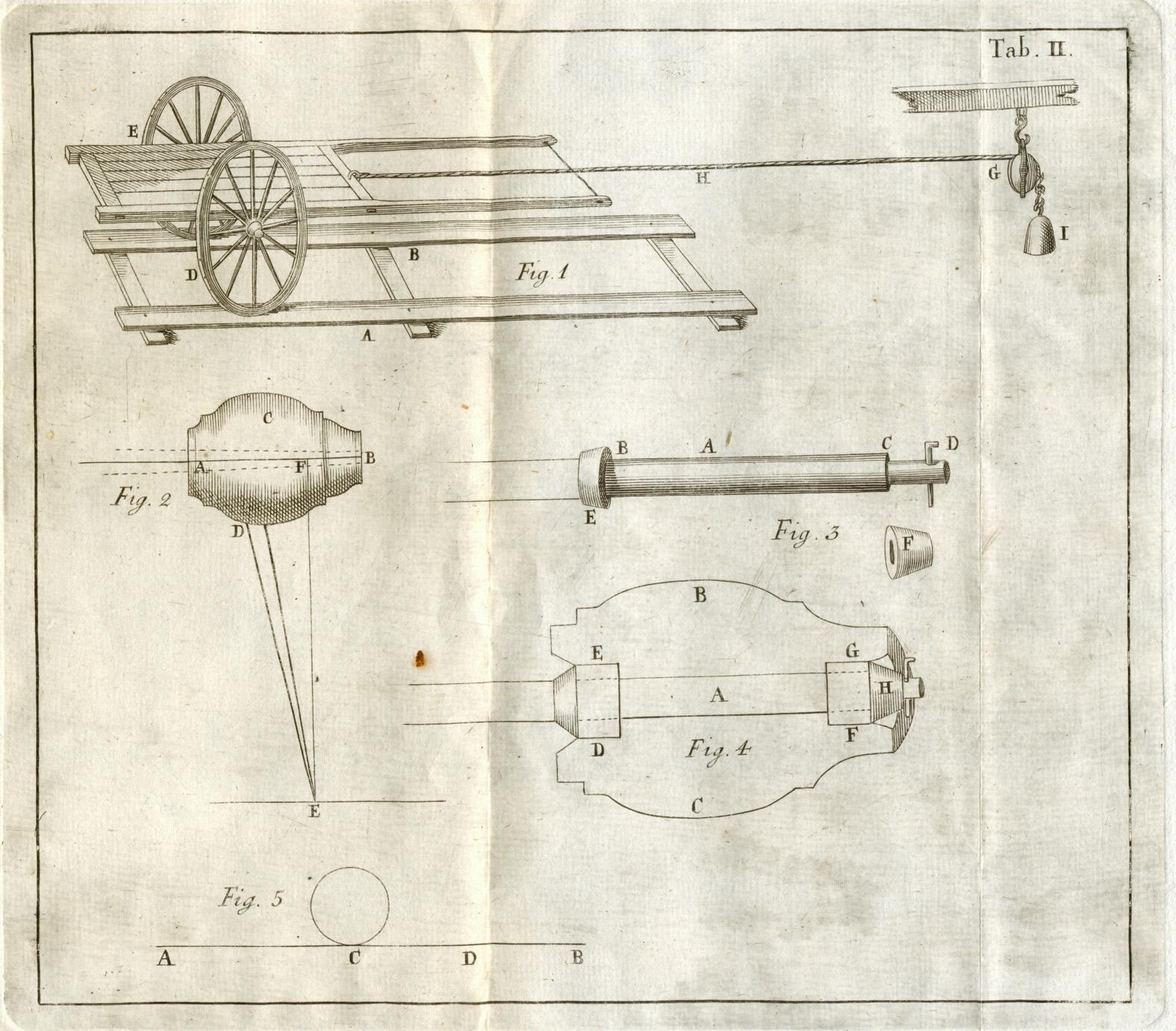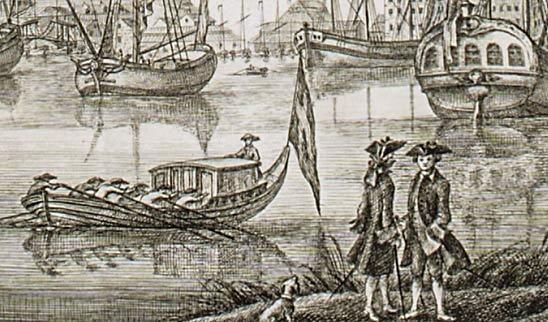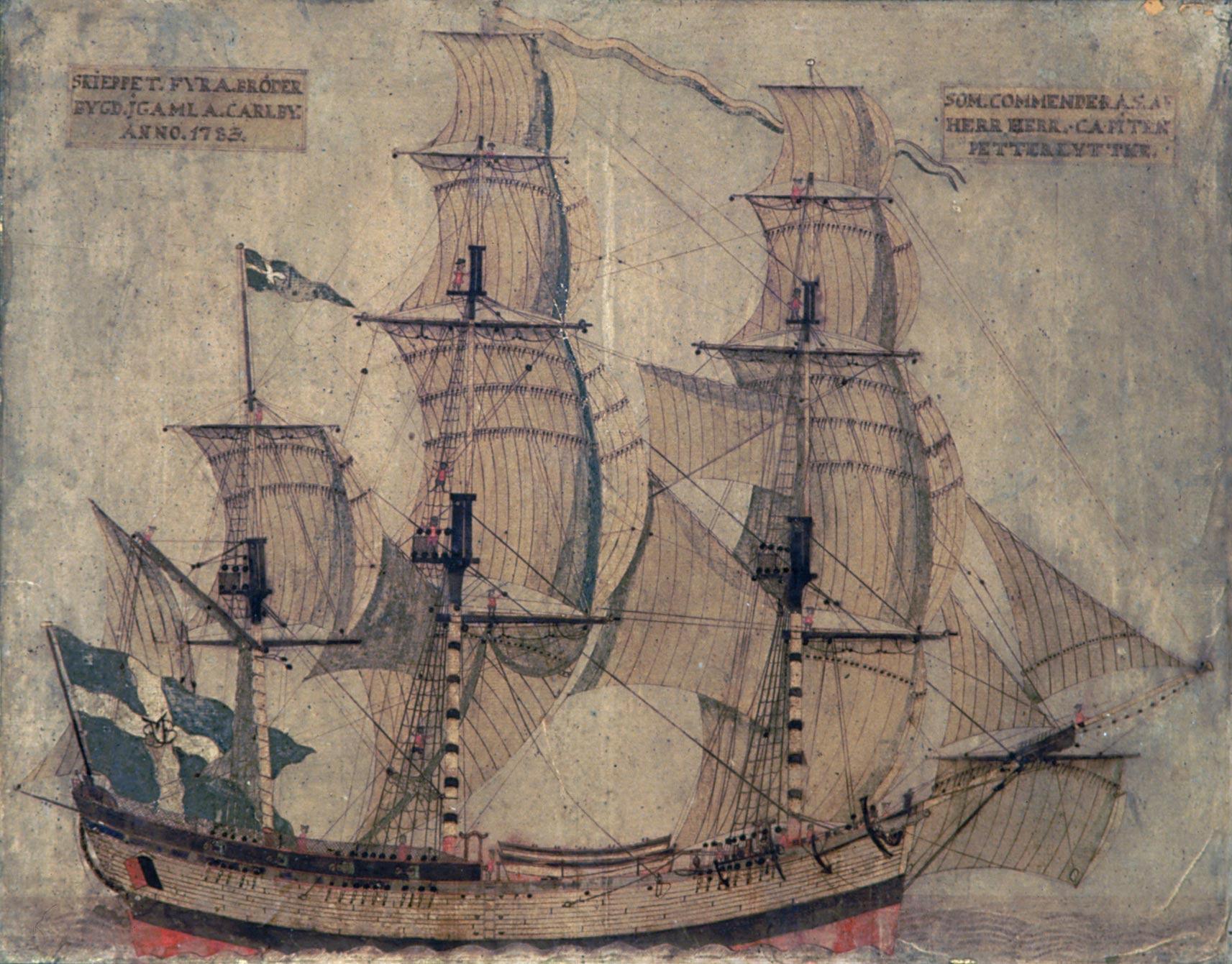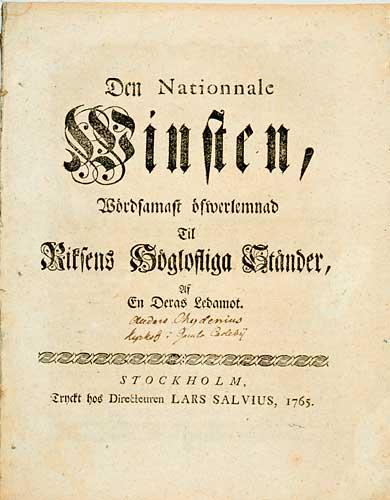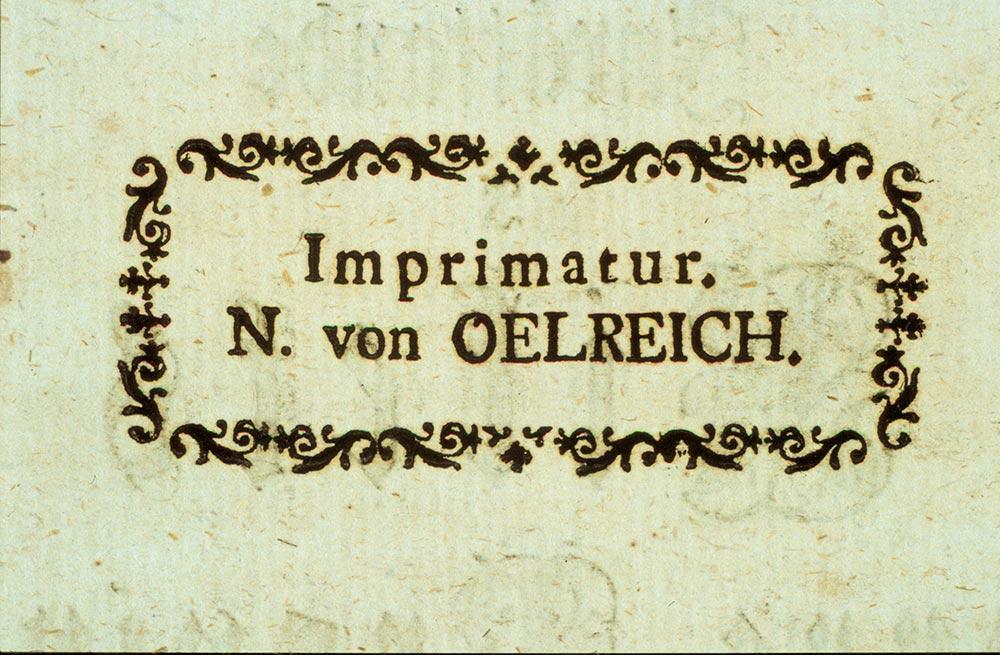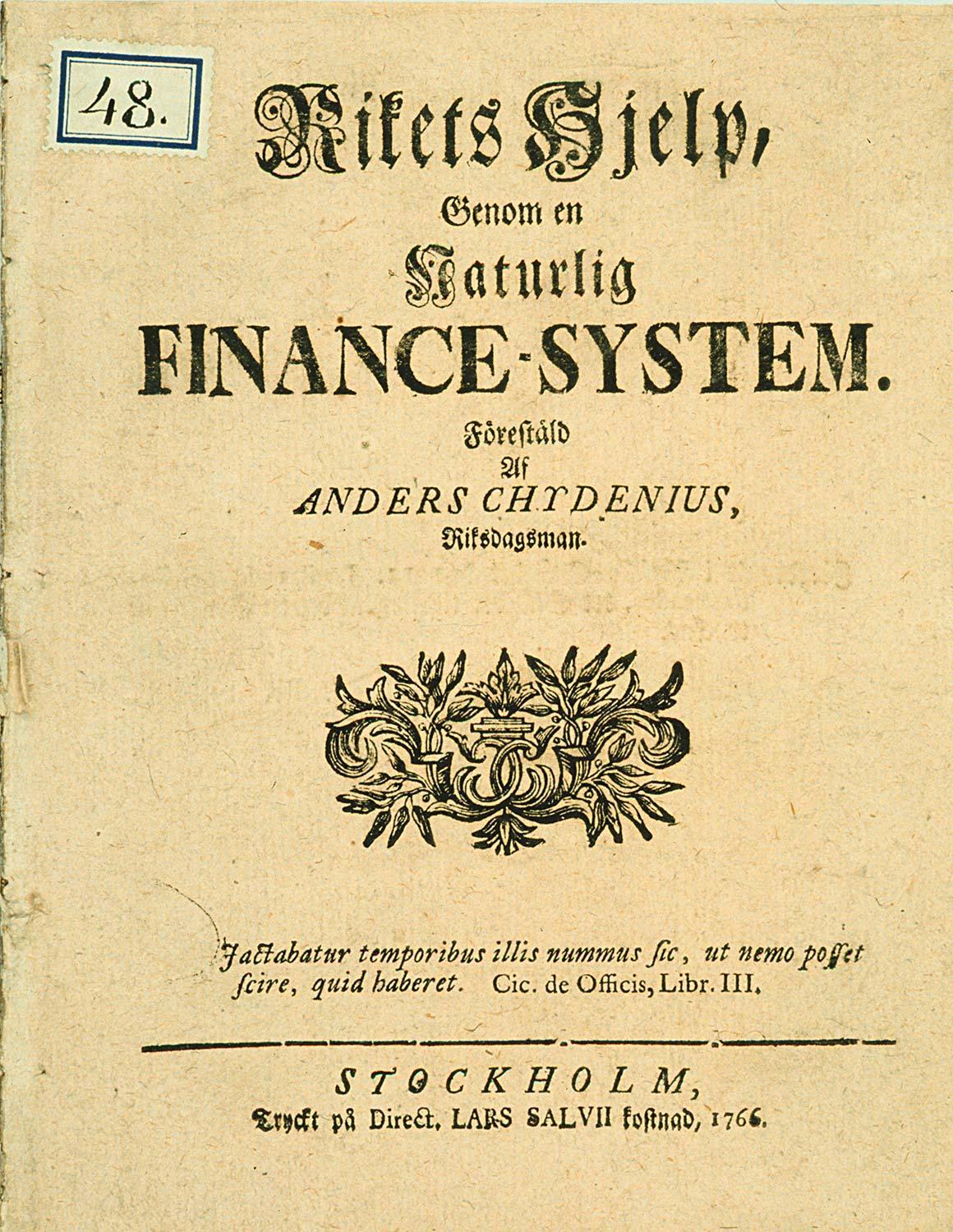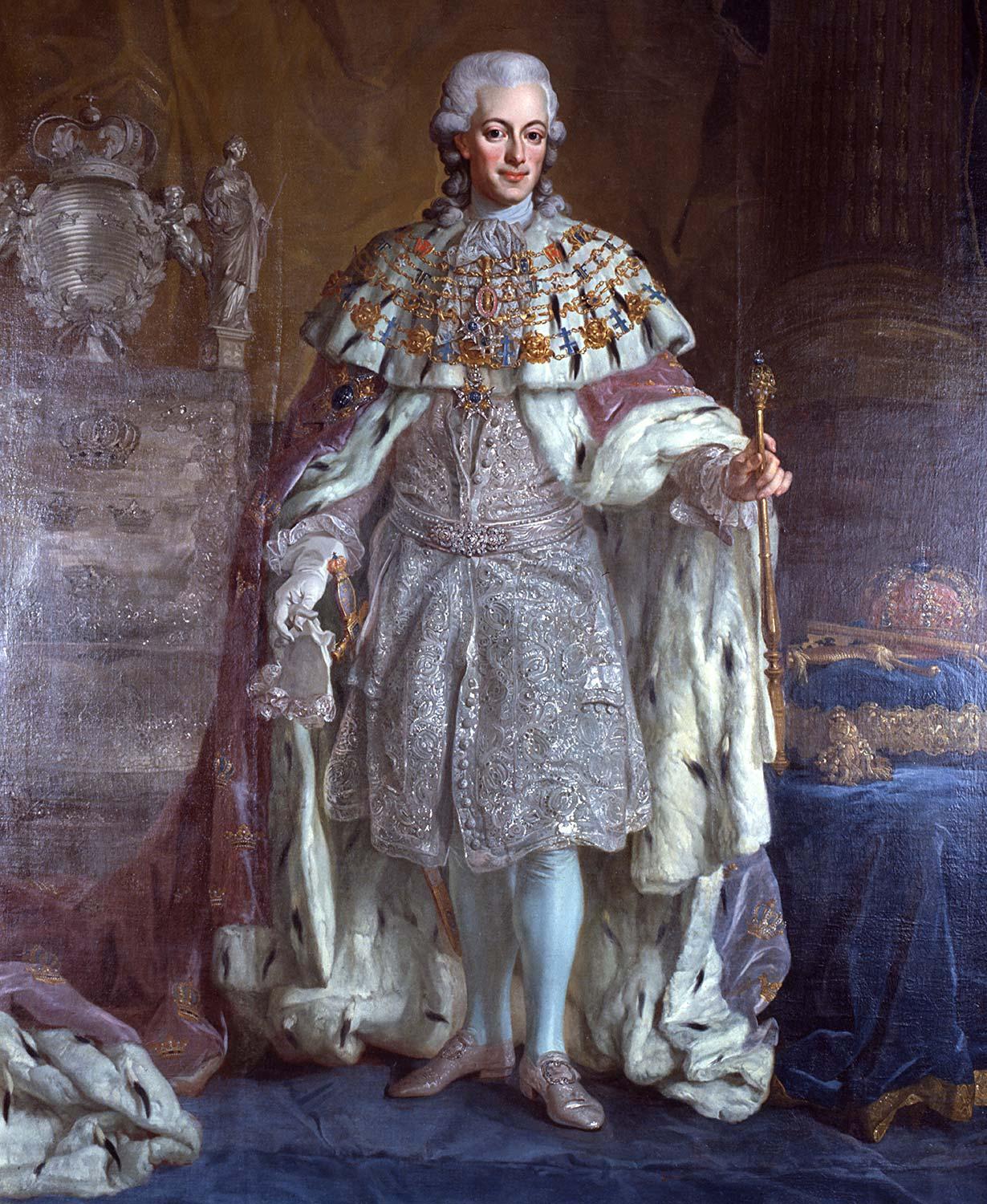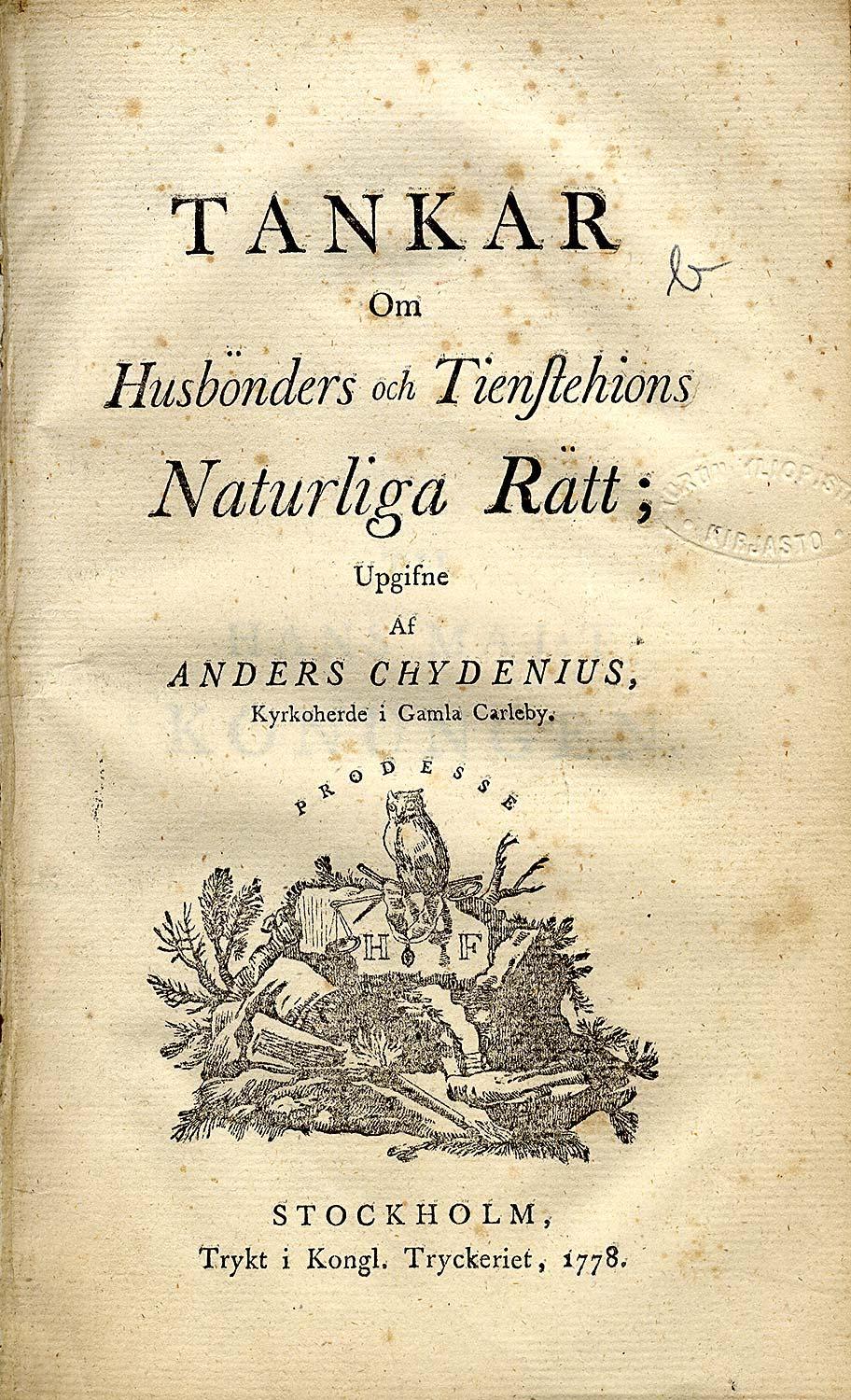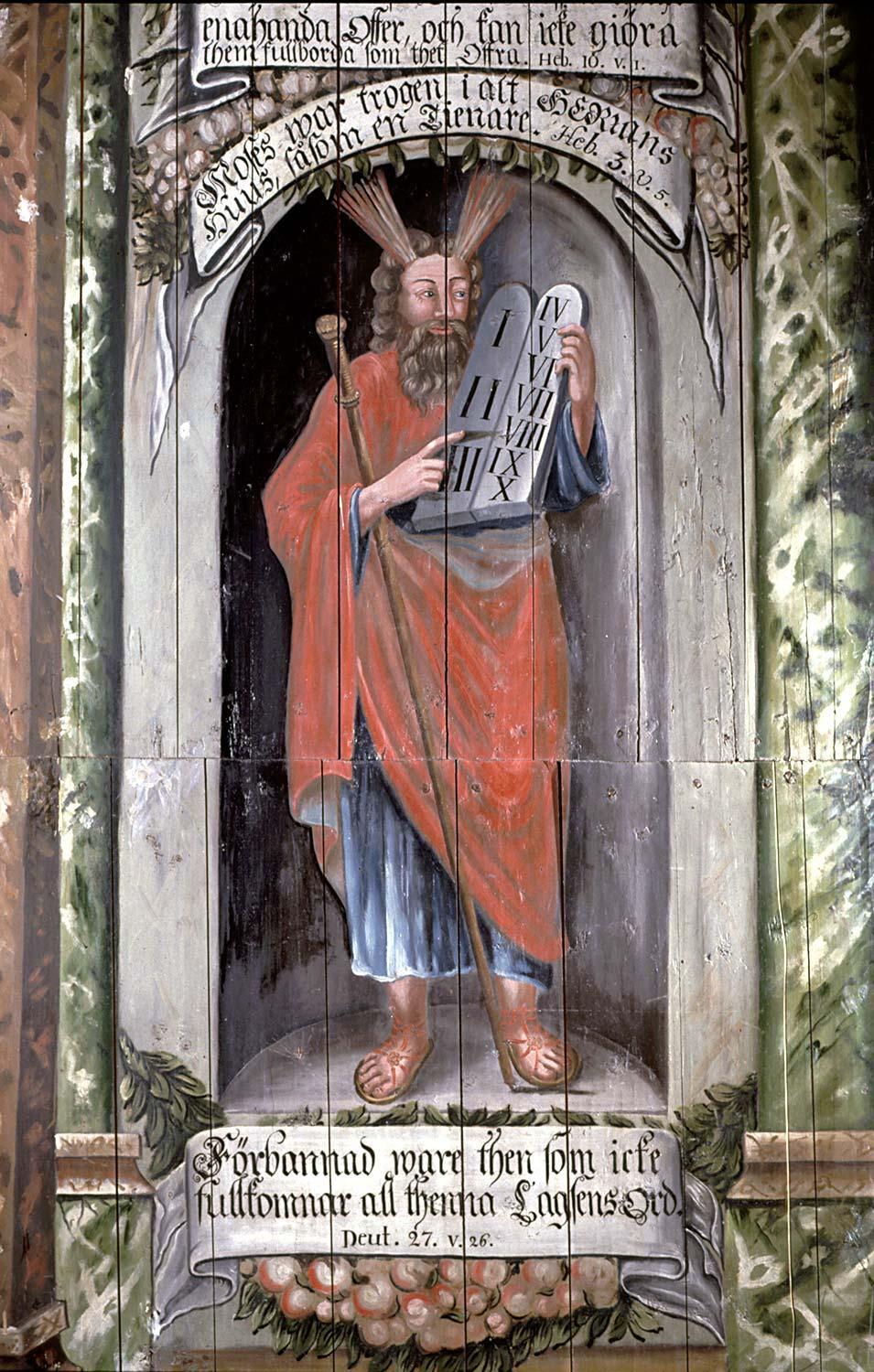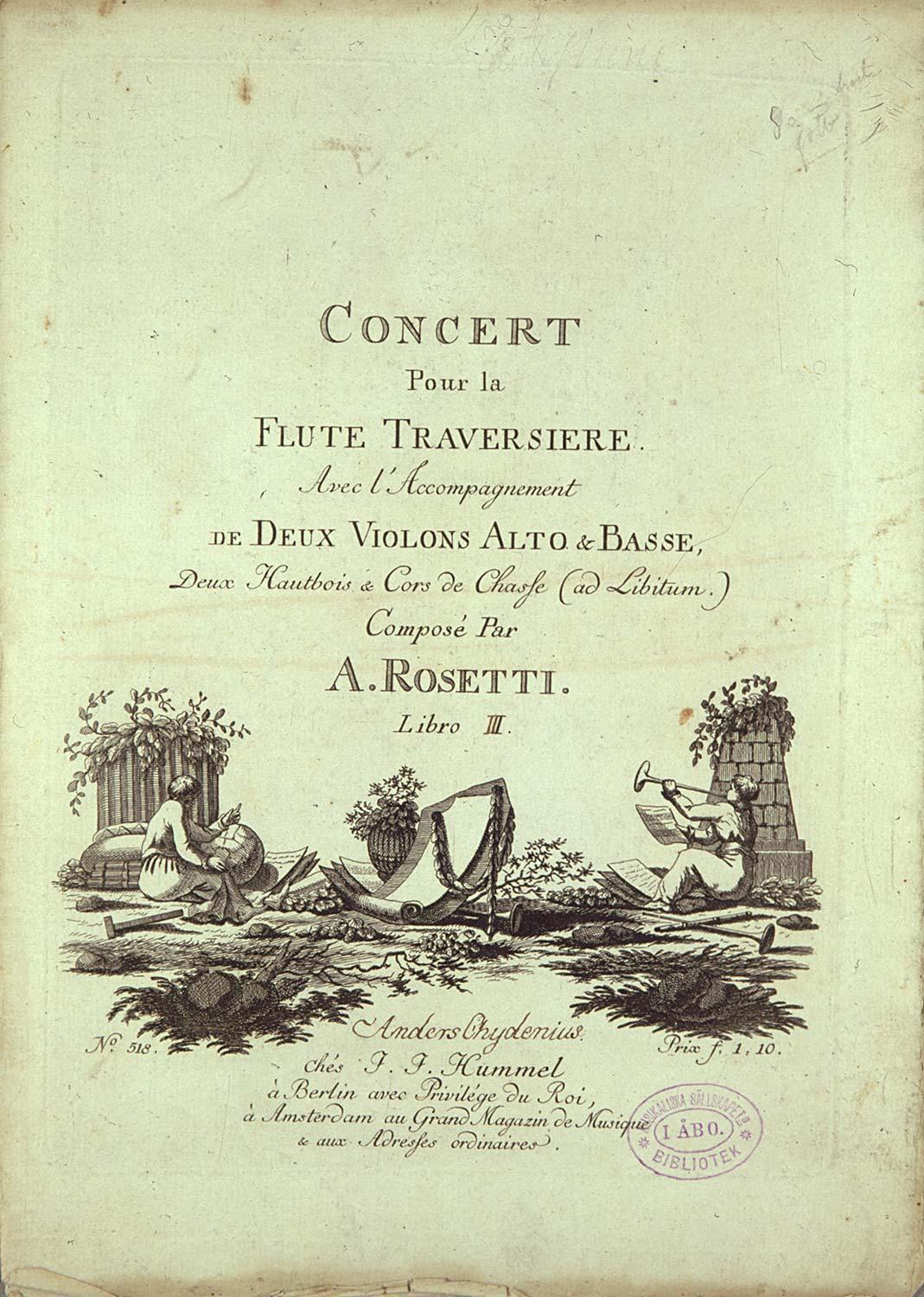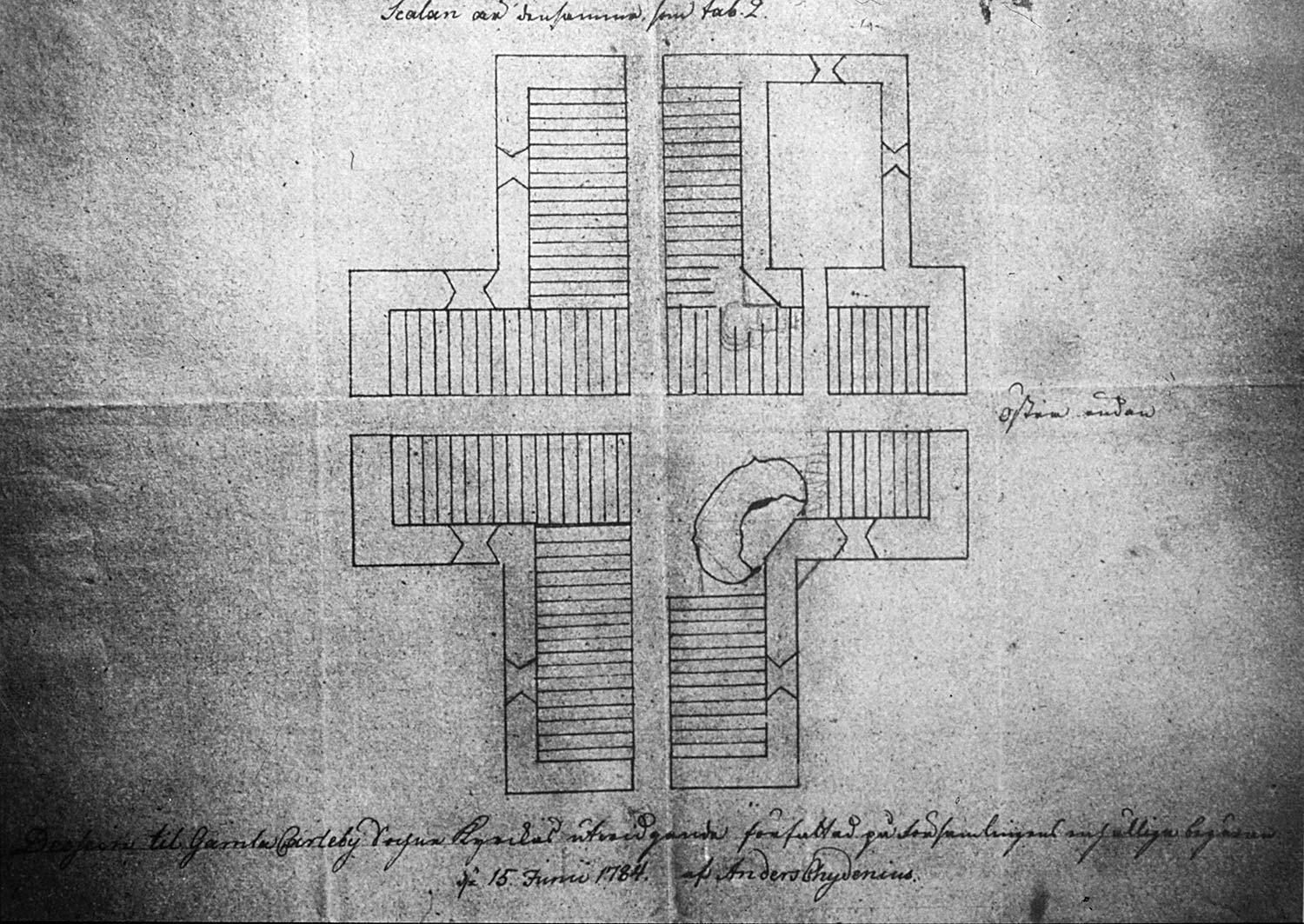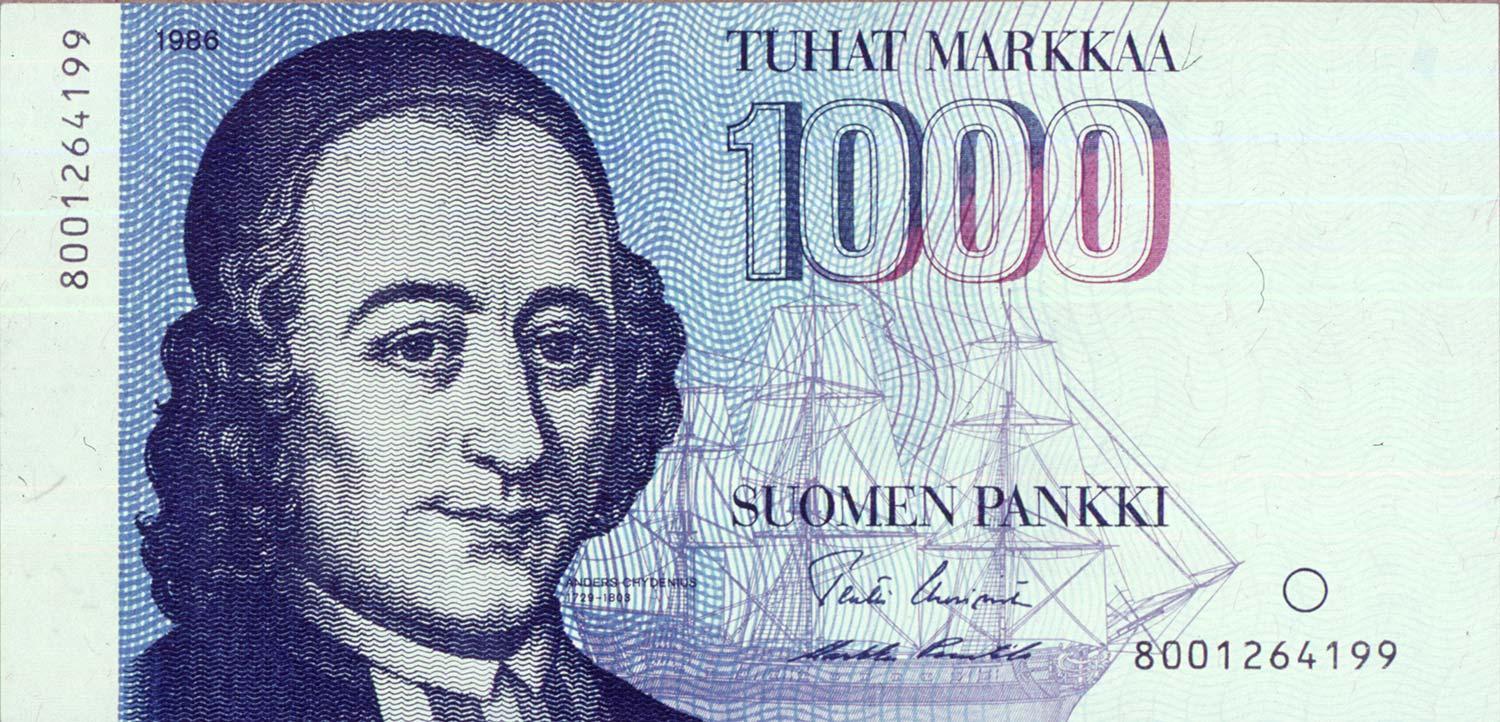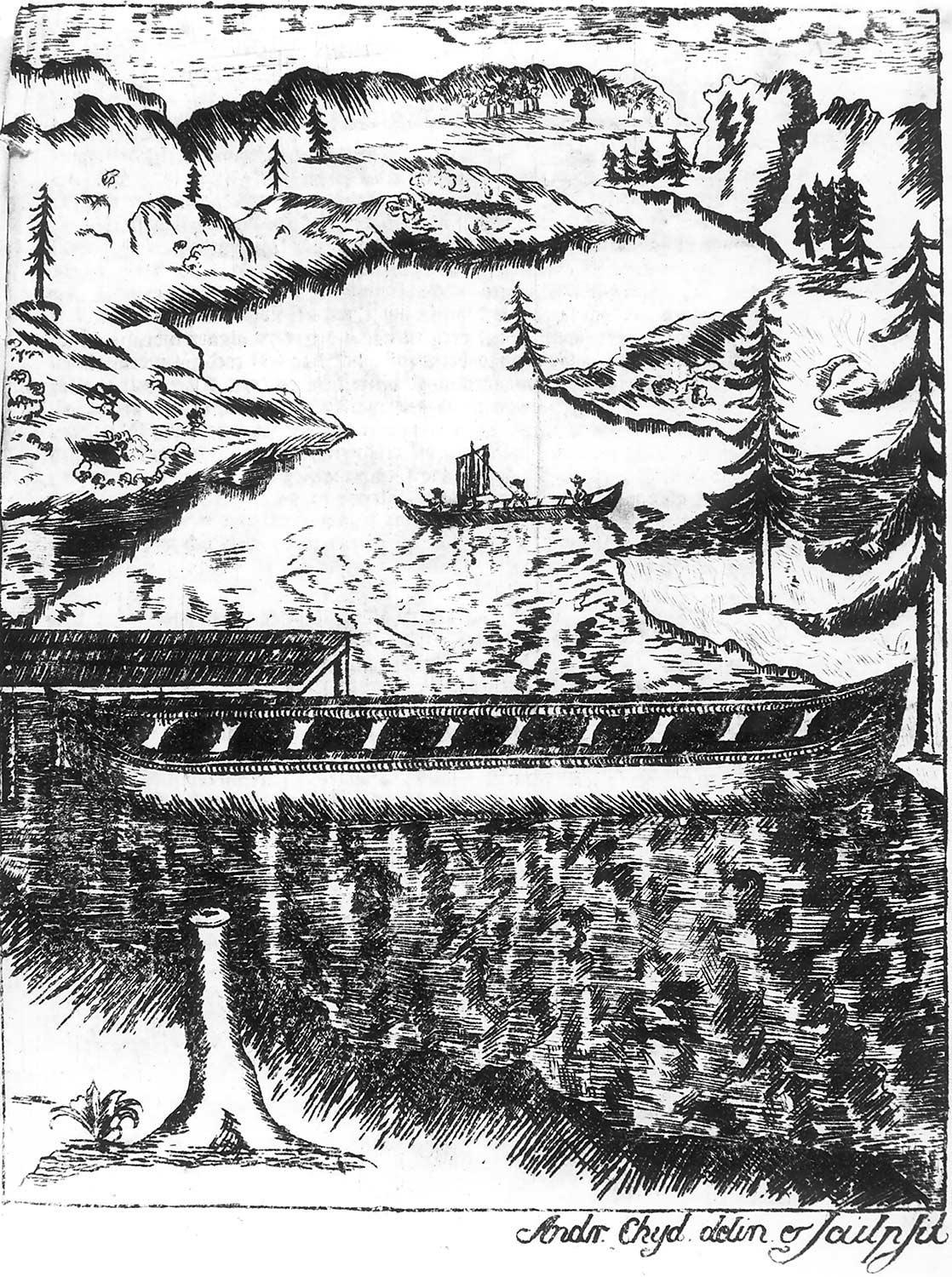Mercantilism
The dominant economic theory of the eighteenth century is nowadays designated as mercantilism. Its goals were the advancement of export and export industry, and the achievement of a positive balance of trade. Behind this was the idea that the wealth of the world was constant, so that economic growth is only achievable at the cost of the competition.
To mercantilism belonged a strong and detailed intervention in economic life by the machinery of State. Statutes decreed limits to the activities of all social groups, and the breaking of these was seen as leading to chaos.
The mercantilist policy was based upon the nation’s economic growth. However in practice it can be seen as serving only the interests of the bigger businessmen. The centralised State, through its regulations, became a means by which harmful competition could be effectively eliminated.
Criticism Arises

Commercial counsellor Anders Nordencrantz (1697–1772) significantly influenced the politics of The Age of Freedom and also Anders Chydenius’ political awareness. Copper engraving, J. Gillberg, after the painting by Per Krafft senior. The National Board of Antiquities.
The inadequacy of mercantilism to the prevailing conditions became more and more obvious by the middle of the eighteenth century. The ideals of the writers of the French Enlightenment began to arouse more interest in Sweden too. For instance the pre-physiocrats Plumard de Dangeul and the marquis Mirabeau, were well-known in Sweden, since their works were translated into Swedish.
The pre-physiocrats were of the opinion that agriculture was the only really productive occupation, and that through this, in contrast to the theory under mercantilism, “new” wealth could be created, without even surplus foreign-trade balance.
In Sweden, where other trades were few, the development of agriculture had been a goal of the mercantilists too. However the pre-physiocrats demands for freedom of enterprise struck responsive chords.
The Party of the Hats, which was in power during the middle years of the Age of Freedom, and which to a large extent represented the views of the wealthy Burghers and officials, was largely responsible for the Swedish applications of mercantilism. With the collapse of the position of the Hats in the 1760’s, criticism was mainly in the party of the Caps, who mostly represented agriculture and the interests of the most marginal areas.
The main critics were Johan Fischerström, assistant professor of economics at Uppsala University, Per Niklas Christiern, baron Carl Leuhusen and the Councillor of State Carl Fredrik Scheffer, who from the year 1756 was the crown prince Gustavus’ instructor.
More important political influencer was however the Councillor of Economics Anders Nordencrantz, at first an orthodox mercantilist and of the Hats, but later moving to become a severe critic of dominant economic policies, and eventually moving over completely into the ranks of the Caps in 1765. The writings of Nordencrantz made a strong impression also on the young Anders Chydenius.



